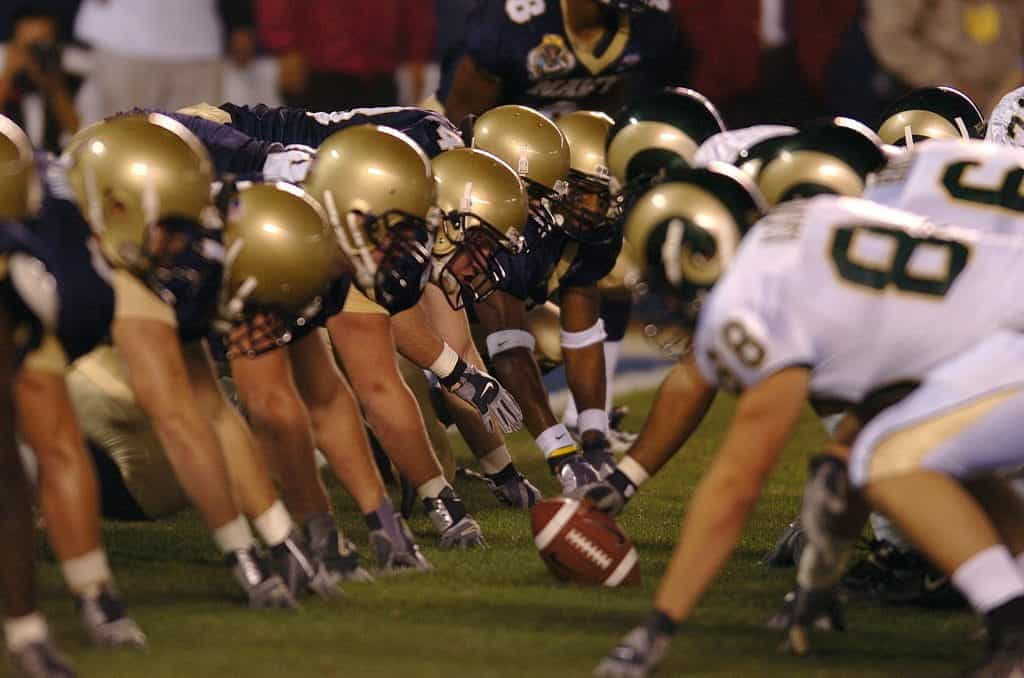Michigan Progresses with Expanded Gambling
Lawmakers in Michigan’s House of Representatives have passed broad legislation to legalize sports betting, internet gambling and betting on daily fantasy sports. However, it is yet to be guaranteed whether the state will progress with the laws, with state Governor Gretchen Whitmer still to approve of the proposed changes.

New legislation set to be voted in the Michigan Senate could mean the state could have legal sports betting before the Super Bowl in 2020. ©Pixabay
In total, 10 bills were passed by the House that collectively has far-reaching effects for the state’s gambling industry, with the main bill focusing on allowing sports betting for people 21 and older at casinos currently operating in Michigan. This bill was passed on a bipartisan vote of 63-45.
If signed into law, the bill has stipulated an 8.75% tax on sports betting plus an extra 3.25% tax for Detroit casinos. Taxes on online gambling would begin at 4% eventually increase to 23%. It is predicted that given these figures, taxes on sports betting would raise up to $30 million in revenues from a $225 million betting market.
The move to allow sports betting in the state follows a growing trend across the nation that has seen thirteen states and the District of Columbia approving gambling on sports since the overruling of PASPA by the U.S. Supreme Court in 2018.
According to the lead sponsor of the bills and Republican representative of Kalamazoo Brandt Iden, the move could potentially generate much-needed funds for some of Michigan’s struggling social initiatives.
“More than a dozen states, including some of our neighbors in the Midwest, have already legalized sports betting and have reaped the benefits. If Michigan follows suit, we could generate another revenue source for vital public services and improving our school systems.”– Brandt Iden, Representative of Kalamazoo, Michigan House of Representatives
For years, Iden has led the charge on expanding gambling laws in Michigan In fact, his legislative efforts in the last session that sought to legalize daily fantasy sports betting and online gambling was successful in the House until they were vetoed by former Governor Rick Snyder.
The bills would not only allow for wagering on the outcome of games but allow for more nuanced bets such as when a baseball pitch would strike. While many of the allowances in those bills have survived, it’s not guaranteed how lawmakers will react when the new bills move to the Senate for consideration.
Governor Whitmer’s Opposition
The major roadblock to the bill’s passing is that Governor Whitmer has failed to see eye to eye with lawmakers – not because she is opposed to expanded gambling, but because she believes that the 8.75% tax rate is too low.
Whitmer has outlined a reason to believe that expanded gambling would mean that the state lottery would be less popular, an opinion that was shared by Rick Snyder. Snyder provided this concern as his reasoning for why he ultimately opposed gambling expansion.
Proceeds from the state lottery currently support the School Aid Fund, which is used to fund K-12 schools across the state. Despite the concerns about potential negative impacts, Tiffany Brown, a spokesperson for Whitmer, has reaffirmed that they are still making an effort to consider the laws, saying:
“The administration has taken every meeting we’ve been invited to regarding this legislation and will continue to work closely with the bill sponsor, tribal leadership and stakeholders to attempt to address our concerns.”
In place of the 8.75% tax rate, Whitmer has proposed a tax rate of 12% on sports betting and daily fantasy sports betting. In turn, taxes on online gambling would range between 2% and 19% based on the kinds of activities gambled on and the amount that is wagered.
While the bill was mostly supported by Republican votes, the package was still voted for by some Democrats. For those who didn’t, some expressed the unlikeliness of the bills in their current form to be signed off on by Whitmer.
“Nobody on our side of the aisle wants this package to be right more than me, I guarantee you,” said the Democratic representative for Ann Arbor Rebekah Warren. “We still don’t have the bills in a form that will survive our governor’s veto pen.”
As for how the bills will fare in the state Senate, there are some doubts that the bill will even garner Republican support. According to Senate Majority Leader Mike Shirkey, the Republican representative Clark Lake said while he’s not opposed to passing similar bills, the package will need to be reviewed further.
Brandt Iden has expressed his disappointment with Whitmer’s position, claiming that she has not been helpful with the process. ”We’ve been working on this for 10 months and time and again we’ve offered the governor an opportunity to provide feedback and she told us she was too busy to engage with us,” he said.
For the time being, the precedent for choosing an effective tax plan for sports betting is inconsistent. While Nevada has set a 6.75% tax on sports betting revenue, Rhode Island has placed a 51% tax on sports betting revenue. If Iden’s set tax rate of 8.75% were passed, it would be the second-lowest rate in the country behind Nevada.



